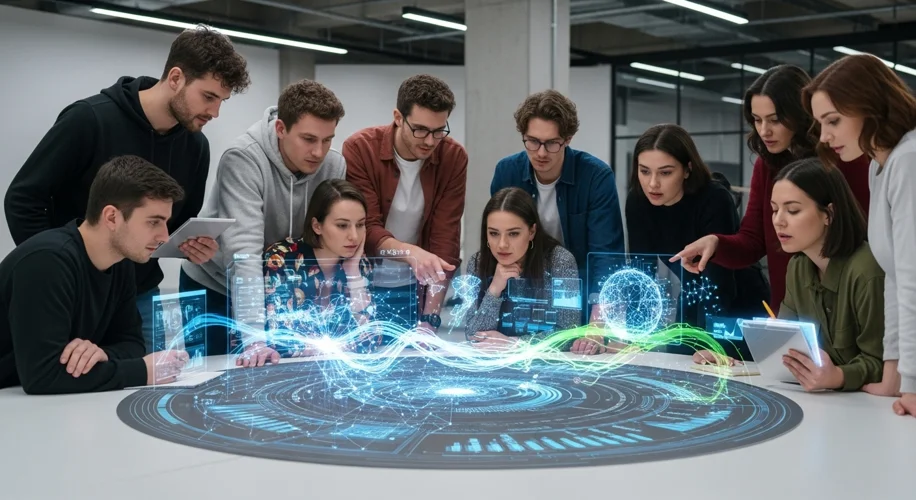Okay, so hear me out. Artificial intelligence isn’t just a cool sci-fi concept anymore; it’s actively changing how we work, and honestly, it’s happening faster than a lot of us expected. As someone deep in the AI trenches, I see this firsthand, and it’s got me thinking about what it all means for us, especially for Gen Z and young millennials trying to build our careers.
AI and Automation: The Big Picture
When we talk about AI transforming industries, a big part of that is automation. Think about tasks that are repetitive, data-heavy, or even dangerous. AI systems are getting seriously good at handling these. We’re seeing it in factories with robots, in customer service with chatbots, and even in coding with tools that can suggest or write code. This isn’t about robots taking over the world, but it is about tasks being done differently, often more efficiently.
For example, imagine a graphic designer who used to spend hours manually editing photos. Now, AI tools can do much of that tedious work in seconds, freeing them up for more creative, strategic thinking. Or consider a junior analyst who spent their days sifting through spreadsheets; AI can now process and identify trends in that data at lightning speed.
The Skills Shift: What You Need to Know
So, if AI is handling some tasks, what does that mean for our skills? It means the skills that are most valuable are changing. While technical skills are still super important (and I’m always building on my own, trust me!), the uniquely human skills are becoming even more critical. I’m talking about creativity, critical thinking, complex problem-solving, emotional intelligence, and adaptability.
This is where reskilling and upskilling come in. We need to be constantly learning. Instead of fearing automation, we should see it as an opportunity to focus on the parts of our jobs that AI can’t do. This might mean learning a new programming language, diving into data analysis, or even taking courses on communication and leadership.
I’ve seen people in my network who were worried about their jobs in data entry or basic customer support. But by taking online courses in AI-powered analytics or advanced customer engagement strategies, they’ve not only stayed relevant but have actually moved into more interesting roles. It’s about learning to work with AI, not against it.
The Future of Work: A New Social Contract?
This massive shift naturally brings up bigger questions. How do we ensure everyone can adapt? What kind of support systems do we need? It’s leading to discussions about a new social contract – basically, how society and employers support workers through these transitions. This could involve better access to training, new models for lifelong learning, or even rethinking how we define a

